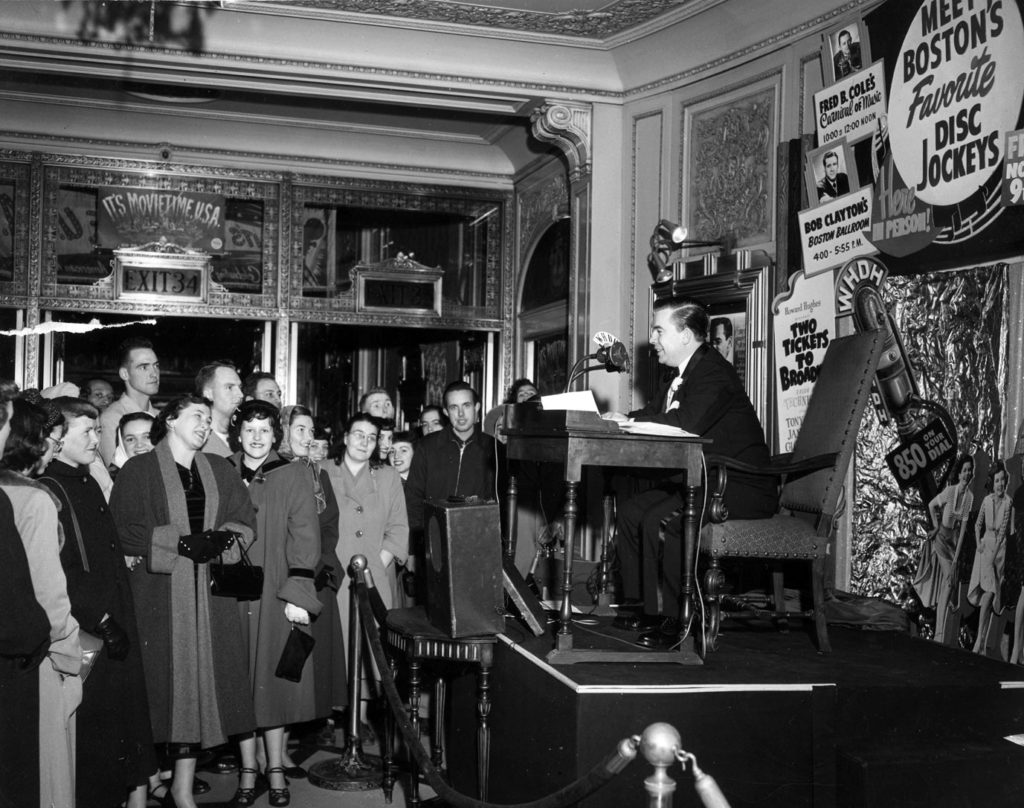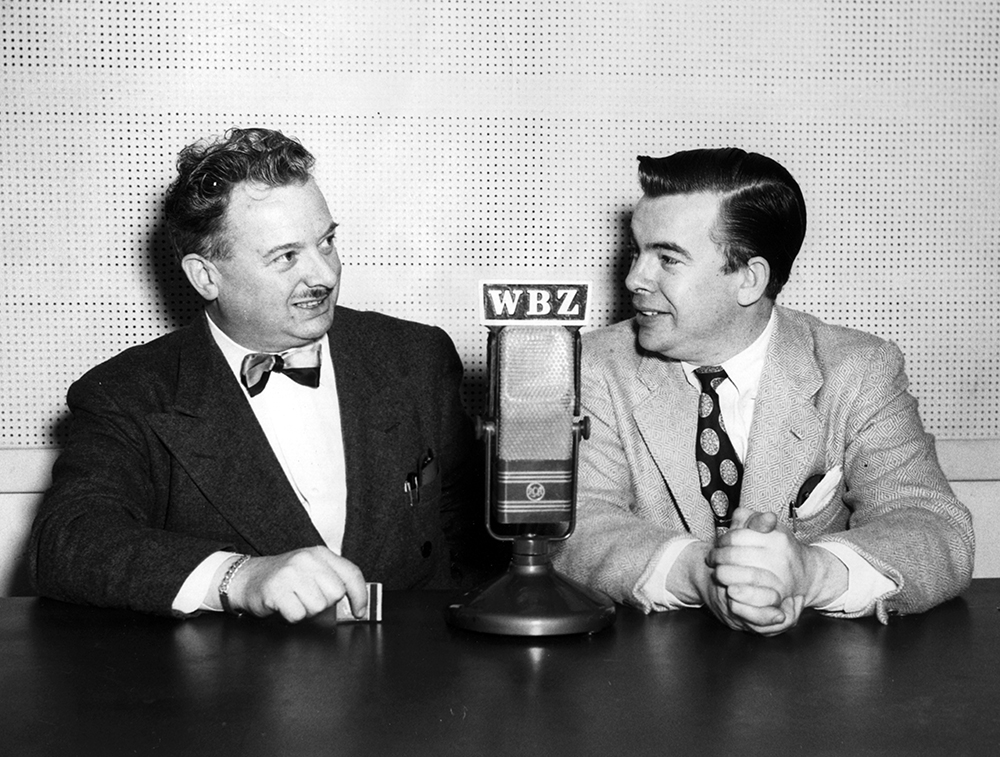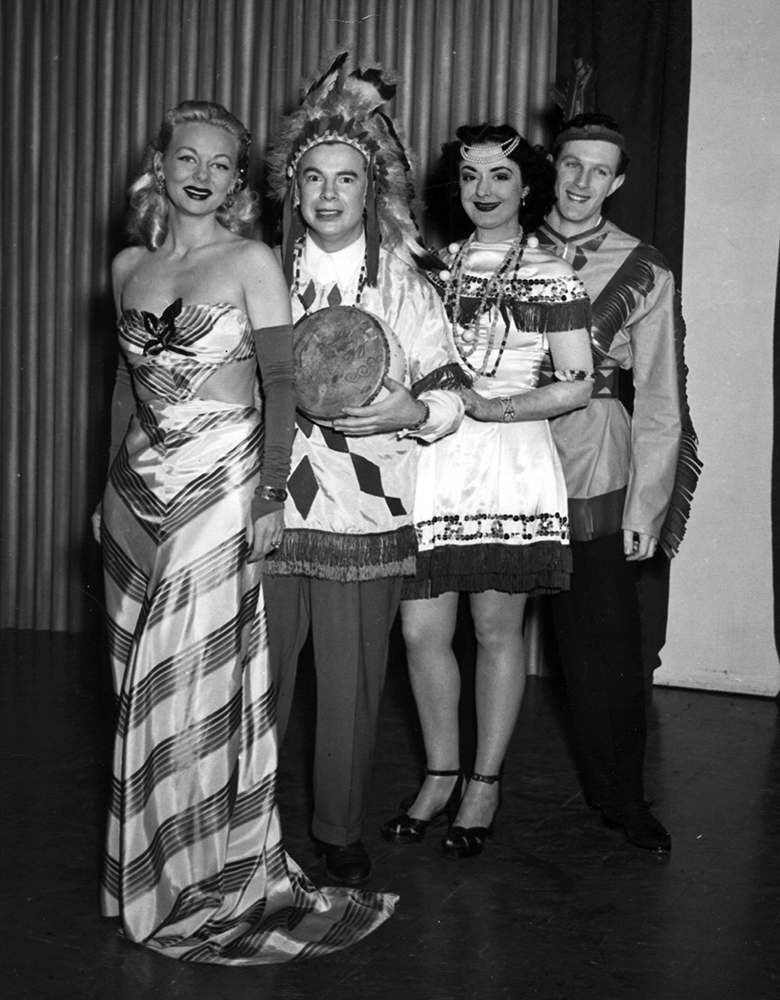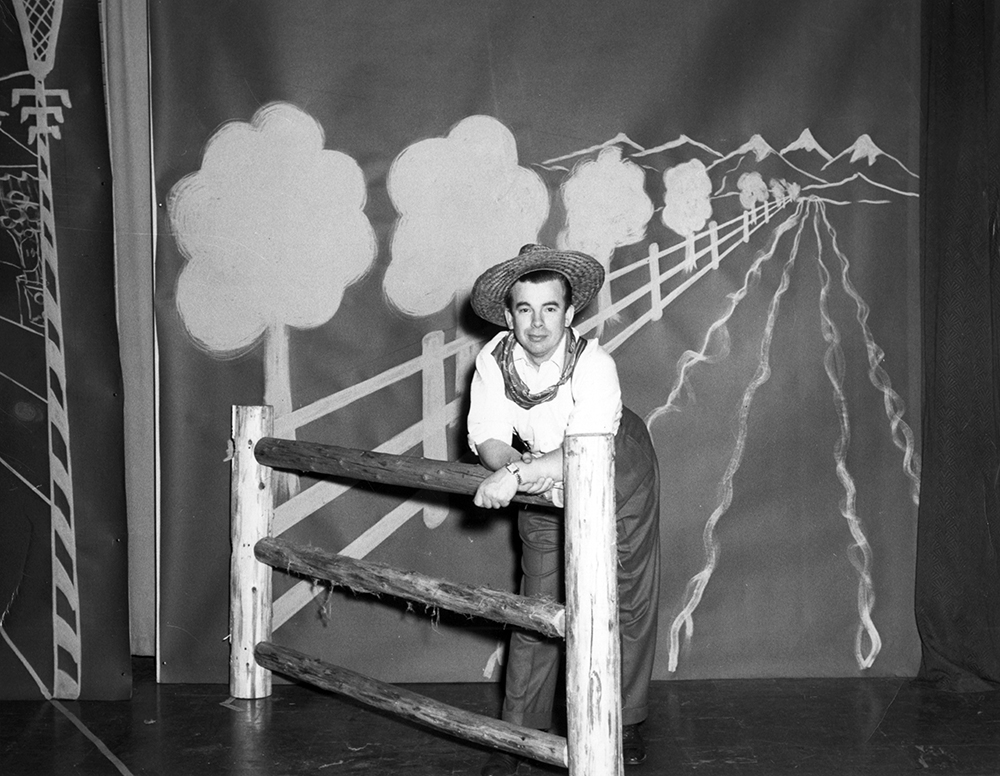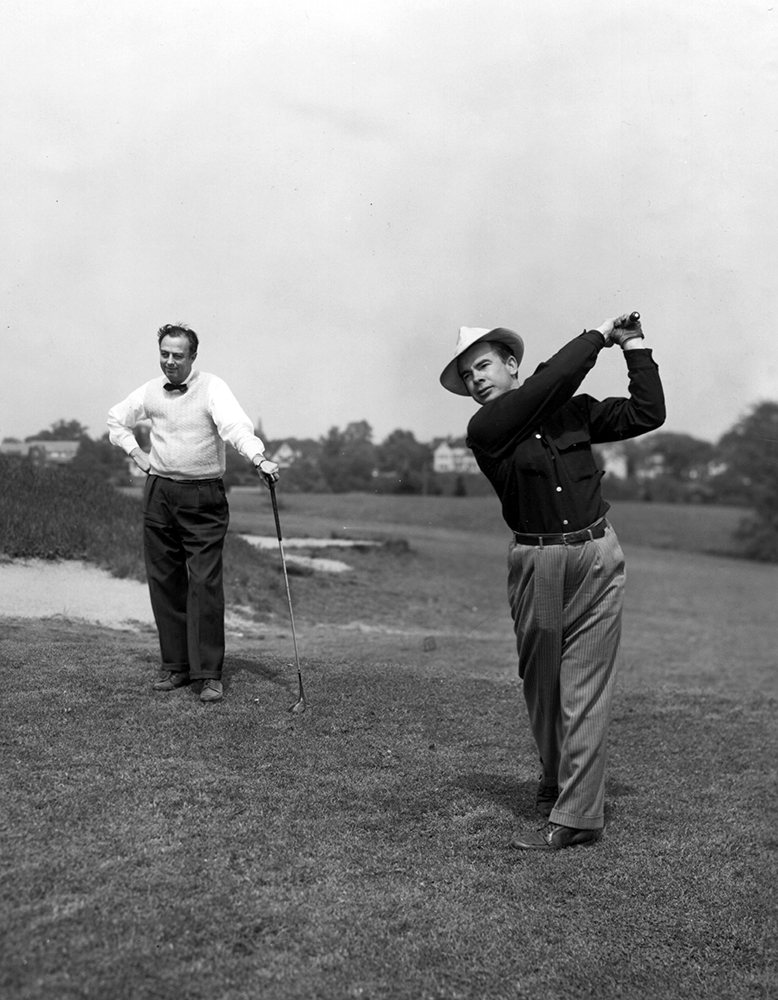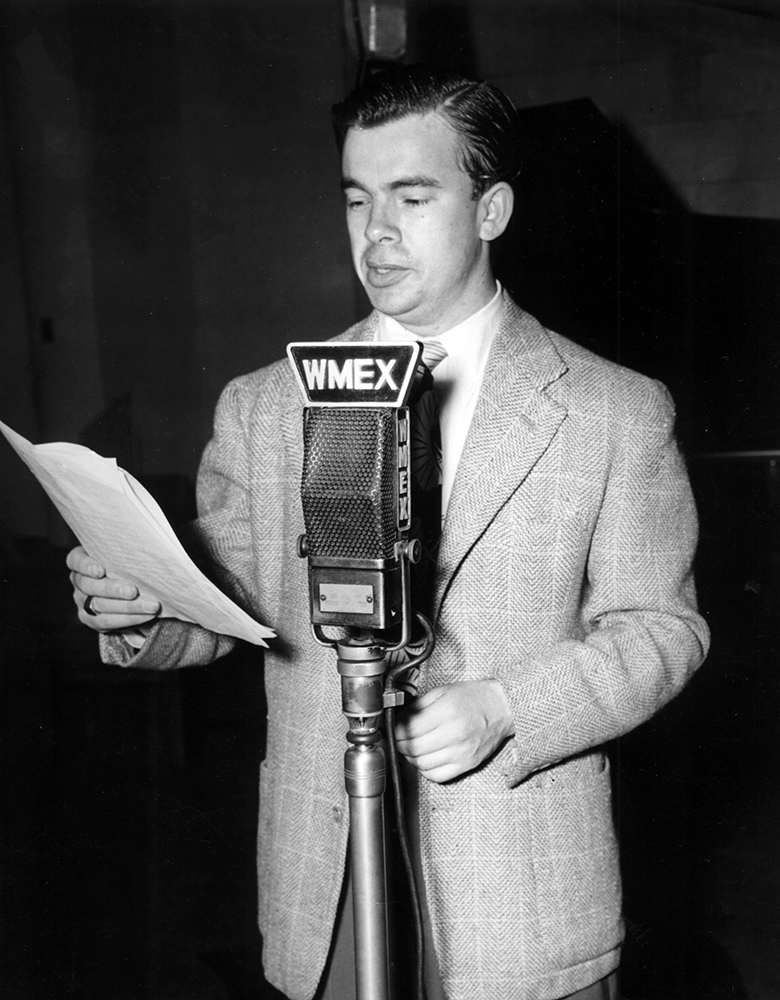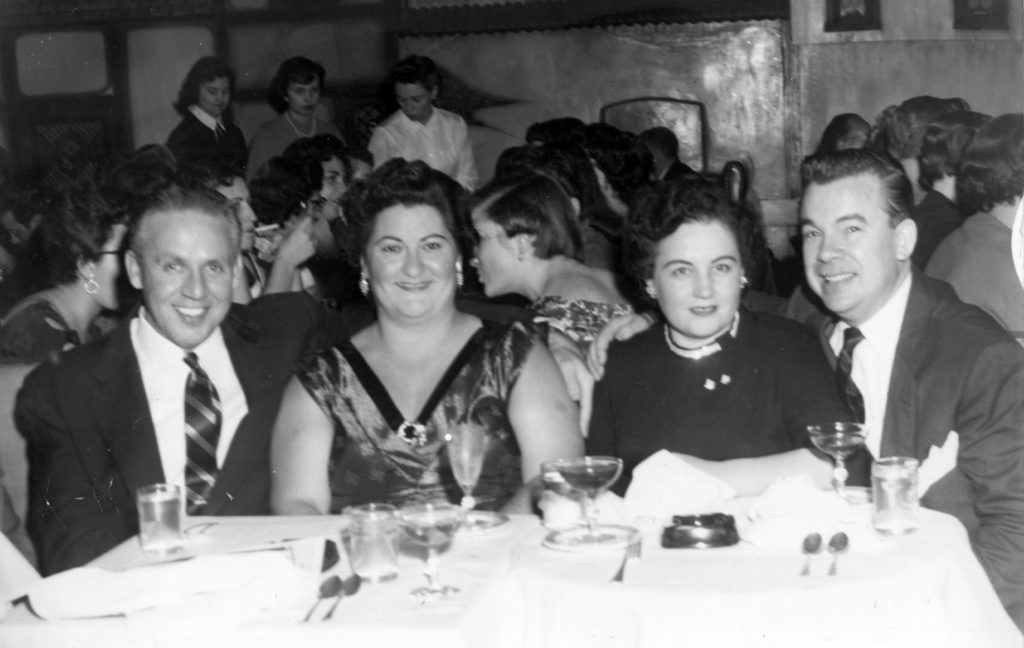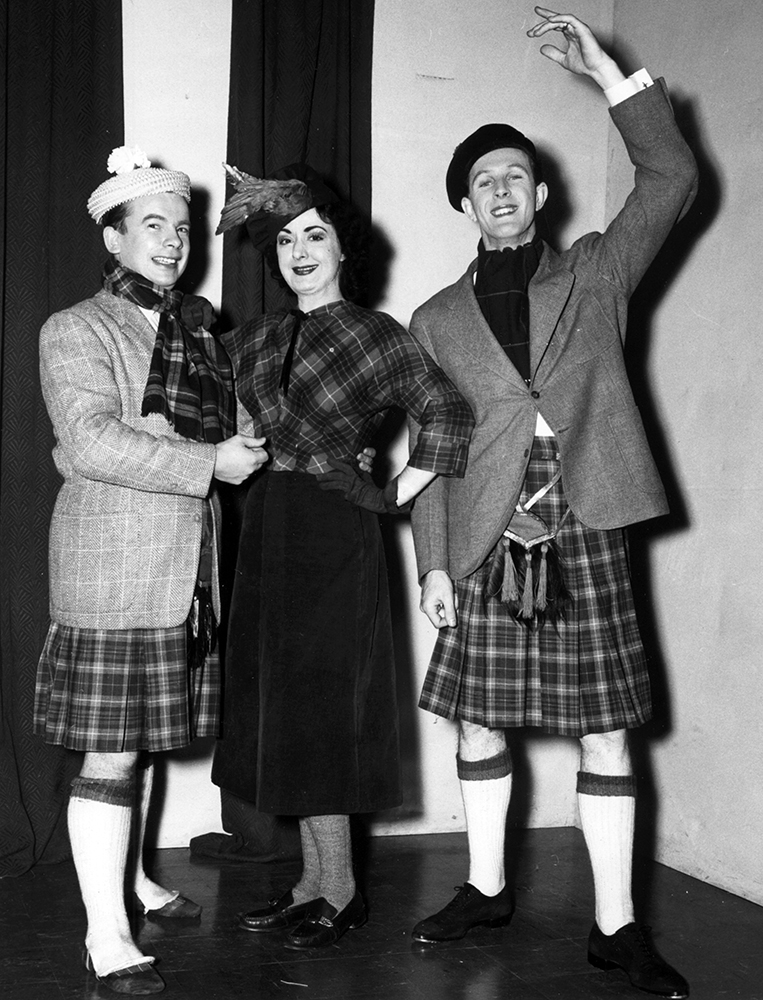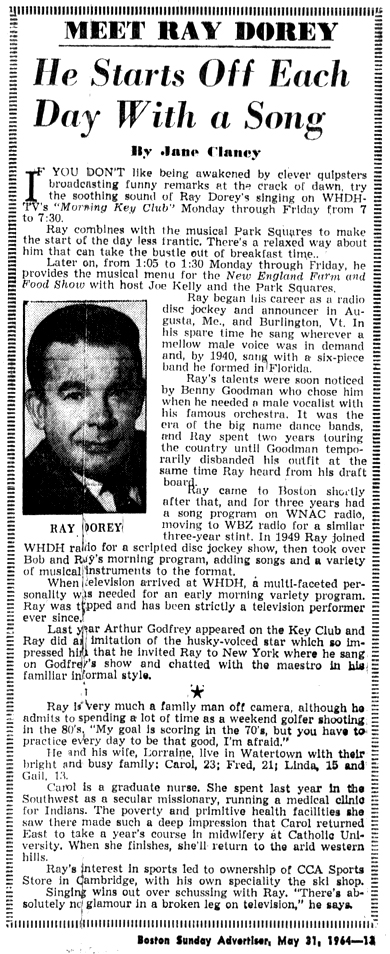Dad
My Dad, Ray Dorey was a well-known singer, musician, disc jockey, radio host and television personality in the New England area from around 1935 to the mid-1960s. He made numerous recordings, many of which are linked to below. If you’d like to learn more about this very special man, click HERE to read his biography written by my sister Linda.
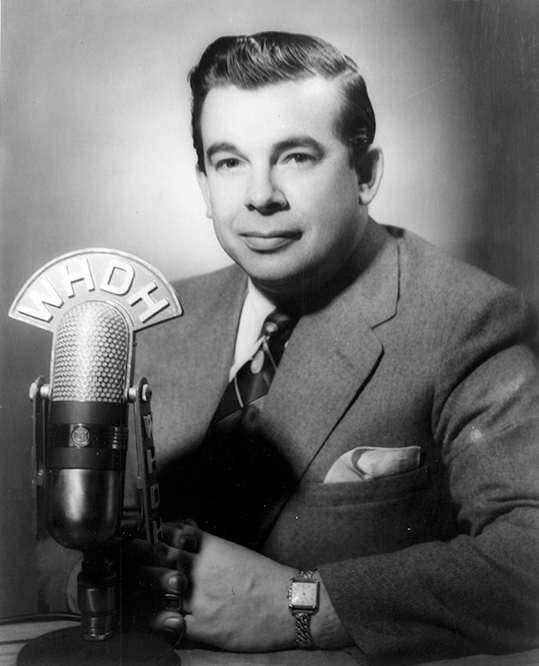
AUDIO RECORDINGS:
And Mimi
Boulevard of Memories
Freedom Train, The
Give Me a Song with a Beautiful Melody
Give Me Your Love For Christmas
Gonna Get A Girl
I Can Dream Can’t I
I Never Loved Anyone
I Wish I Knew The Name (of The Girl In My Dreams)
I Wish Somebody Cared Enough to Cry
If I Could Be with You
It Isn’t Fair
Lover’s Gold
Mam’selle
Man Who Paints the Rainbow, The
Passing Fancy
Saturday Date
Sunshine
Tell Me Why
Too Many Kisses
Why Should I Cry Over You?
SONGS WITH BENNY GOODMAN:
Dinah
Journey to a Star
No Love, No Nothing
Speak Low
Sunday, Monday and Always
 SONGS WITH PAT DALE:
SONGS WITH PAT DALE:
Are You Ready?
What I Am?
SONGS BY JOE GALLI:
All About You
Love Me
That’ll Be Forever
SONGS WITH THE LARRY GREEN ORCHESTRA:
A Bluebird Singing in My Heart
Blue Rhumba
Follow the Swallow To Hide-a-Way Hollow
It’s a Big Wide Wonderful World
Our Christmas Waltz
You’re So Understanding
SONGS WITH THE JOHNNY GUARINIERI TRIO:
Je Vous Aime
Smoke Gets in Your Eyes
Tallahassee
There’s A Train Out for Dreamland
SONGS WITH THE PETER PAN SINGERS:
Christmas Tree That Ran Away, The
The Day Before the Night Before Christmas”
Frankie the Brave Fireman, 1956 (narrator)
I’ve Never Seen Anything Like It”
Santa Claus is Comin’ to Town
Talk to the Animals
Up Up and Away, 1968
Vegetarian, The
Weatherman’s Christmas Prayer, The
*Thank you to friends on YouTube for posting some of these recordings from the original albums!
List of additional Ray Dorey recordings
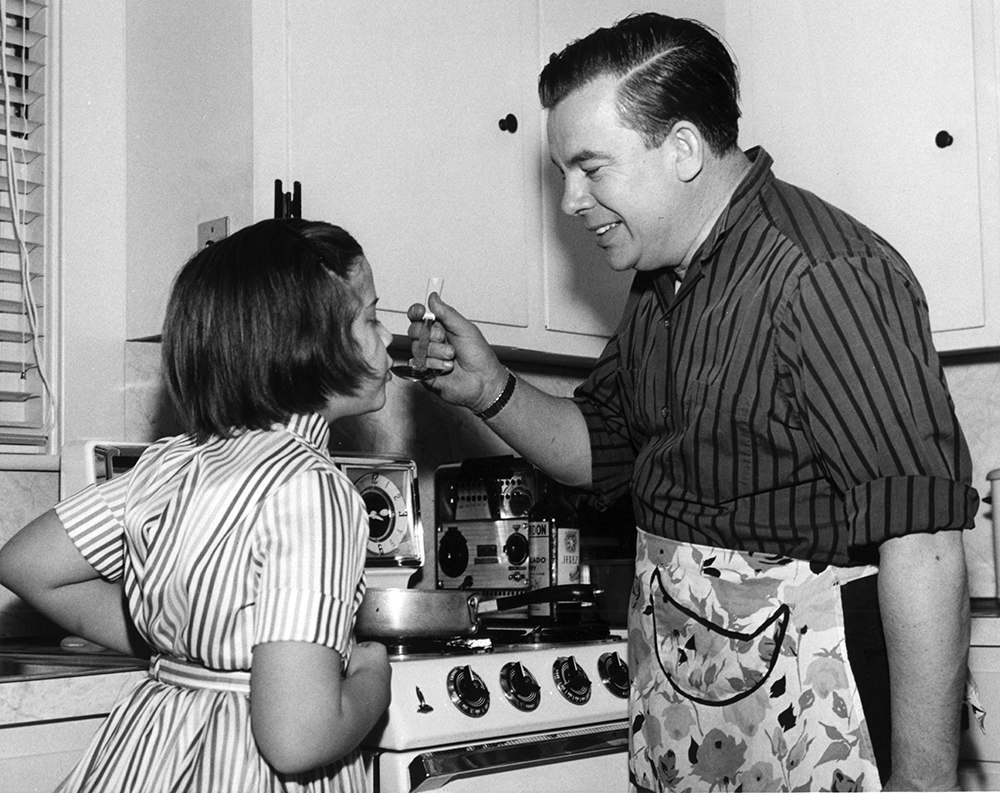
BIOGRAPHY OF RAY DOREY
by Linda Dorey Sampson
Ray Dorey was born March 26, 1918 in Burlington Vermont. His full name was Raymond Louis Dorey. In deference to his father’s French Canadian heritage, the name was pronounced Ray-mon Lou-is Do-re (pronounced Dorais), in a sing songy rhythmic pattern. He was second in the family of six children, with two sisters and three brothers. As a child, he attended the Nazareth School.
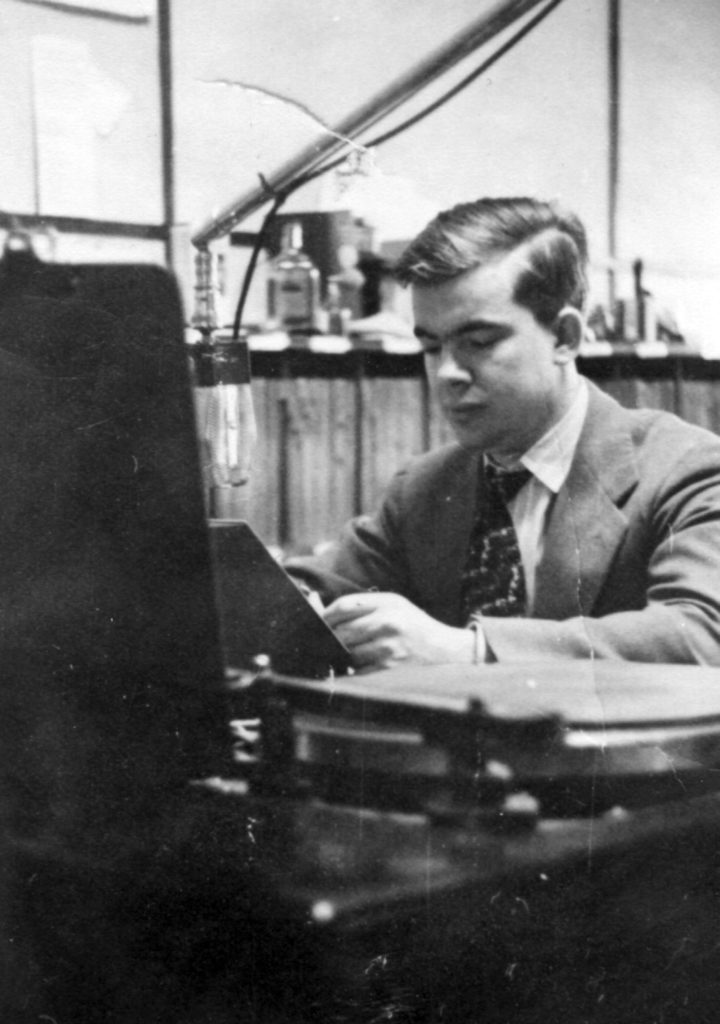
His father, Art Sr., had been involved in music during his life both as a drummer and as baritone singer. Art Dorey Sr. received a special blessing on his 50th wedding anniversary in 1975 from the Pope and received the Benemerenti Medal from Pope John XXIII for his 50 years service as choir director of St. Anthony’s. He organized a drum and bugle corps at the church school and once played drums with John Phillips Sousa to fill in. He stated that he learned directing, speech, and tone correction from the St. Joseph’s choir director. Art’s talent was passed on to his son Ray, and he together with the Sisters in choir provided most of Ray’s instruction in singing and piano since Ray did not take formal lessons.
By the age of 12, 1930, the family lived in Augusta Maine and Ray was performing as a singer and musician playing bells, xylophone, piano, and guitar with the Island Park Orchestra. He also sang with the Lou Doucette band while it was a unit of Rudy Vallee’s organization. While with the band, he won a singing contest with the grand prize a tour around the world, but was not allowed to go because of his age.
Ray graduated from Cony High School in Augusta and attended the University of Maine for a while. However, once his job at WRDO as a radio disc jockey, singer, and announcer took off in Maine, he left school for the world of performing. He had started as a disc jockey in Maine at age 17. Ray’s next job was back in Vermont briefly at WCAX in Burlington, where he was a program director and newscaster in French, reporting for the large French Canadian immigrant population in Vermont.
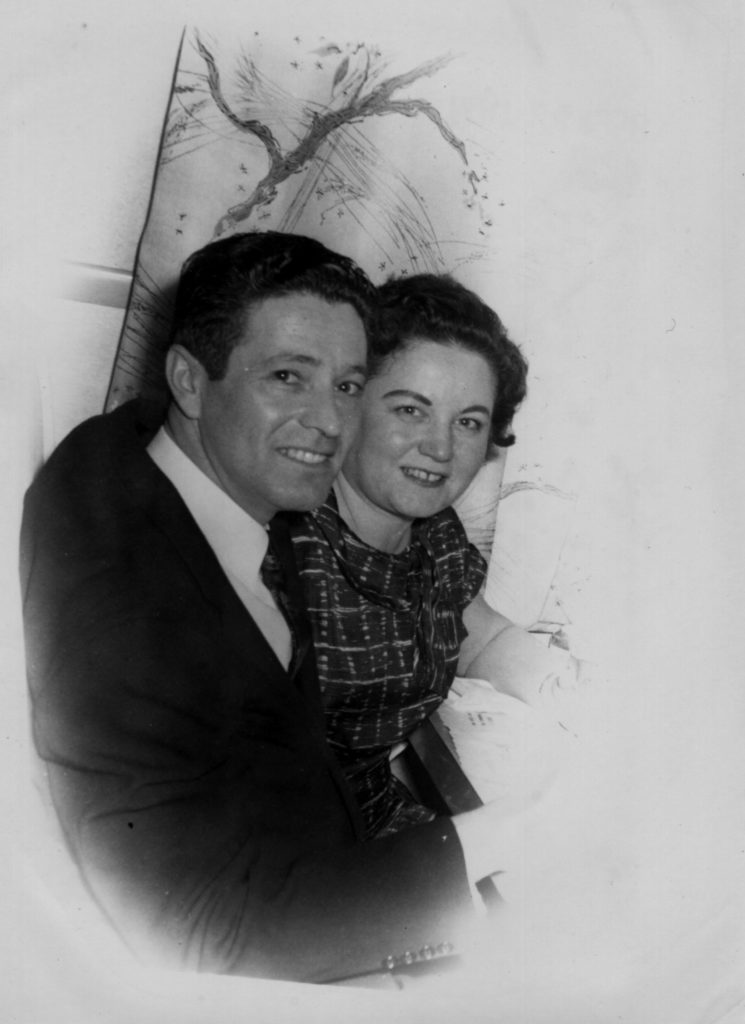
While back in Vermont, he met his future wife Lorraine Pichette, who was actually his second cousin. He was pressured by his mother to visit his second cousin who was just out of the hospital after surgery for appendicitis. They met on her porch then he introduced himself, went inside, sat down, and started playing the piano. He describes a cool reception, Lorraine remembered laughing so hard her stitches ruptured. In three weeks, they were going steady and six months later, they married on November 5, 1938. At the time they met, Ray was earning $16 a week. Ray had to borrow $25.00 from Lorraine’s aunt to buy a ring, which he paid back at $1.00 a week. When he got a raise to $25.00 weekly, they felt rich. The honeymoon was one night in Montreal, driven there by Lorraine’s parents, because they had no car (separate rooms for the in-laws). Then they were off to Florida where Ray toured with a six-piece band. After his first child, Carol Ann, was born, he felt the need for more stability.
He accepted a job in Pittsfield, Massachusetts at WBRK as a staff announcer. He worked with Tom Russell who would later become a competitor on WEEI when Ray moved to Boston. He also sang with the Shire City Orchestra at the Berkshire Restaurant. His son Frederick James was born in Pittsfield in 1942. In Pittsfield, he was known for “twirling discs” as a disc jockey while simultaneously singing. He was scouted while in Pittsfield, and a week after sending a demo tape to New York, Benny Goodman hired him. Benny Goodman sang many of his own songs, but hired male singers for the romantic ballads.
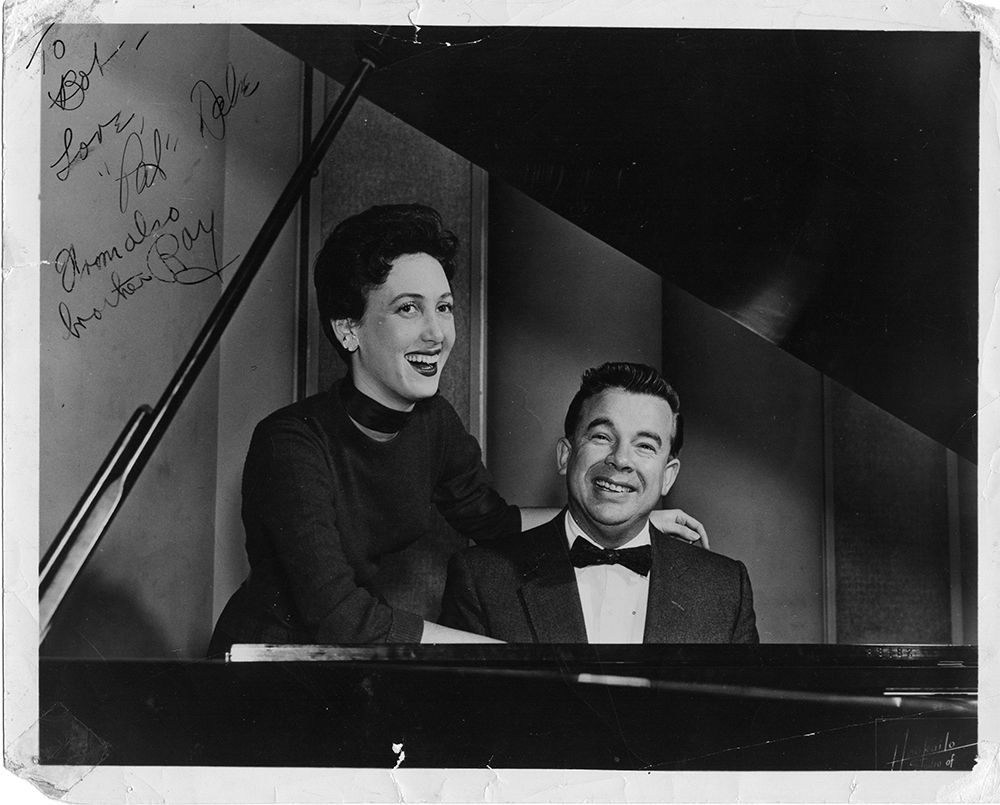
While touring with Benny Goodman in 1943 he performed at the Astor Roof and Paramount Theater with Bob Hope, Carole Landis, Ginny Simms, Kenny Baker, Gypsy Rose Lee, Hall Johnson Trio and Lauritz Melchoir. Reviewers referred to him as the best baritone of the day.
He recorded songs while with Benny Goodman, and many were very popular with the service men and women fighting the war. He toured many army camps with Benny Goodman. He along with Carol Kane performed several shows with Benny Goodman called “One Night Stand” that were broadcast to servicemen from different parts of the country. His biggest recorded hit was Mam’selle, recorded later in1947. In four days it sold out the 50,000 copies and eventually sold 1,000,000 copies, earning Ray a place in the “One Hit Wonders” web sites. A strike around the time the record came out could have kept it from selling even more and becoming number one.
Other recordings included You’re So Understanding and Blue Rhumba on Victor, Lover’s Gold on Victor, Give Me a Song With a Beautiful Melody and Now! Now! Now! on Victor, It’s a Big, Wide, Wonderful World and Bluebird Singing in My Heart by Victor, Sunshine by Victor, Our Christmas Waltz and Follow the Swallow to Hide-away Hollow by Victor, The Man Who Paints the Rainbow (flip side of Mam’selle) by Majestic, Tallahassee and Je Vous Aime from Majestic, Passing Fancy and I Wish I Knew the Name of the Girl in My Dreams by Majestic, I Never Loved Anyone and Gonna Get a Girl by Majestic, The Freedom Train and And Mimi by Majestic, There’s a Train Out for Dreamland and Smoke Gets in Your Eyes by Majestic, Why Should I Cry Over You and Boulevard of Memories by Majestic (preceding from Library of Congress list), Saturday Date and I Can Dream, Can’t I by Majestic, Too Many Kisses and It Isn’t Fair by Gold Medal, and Tell Me Why and Give Me Your Love for Christmas by Gold Medal.

In 1943, Ray was ready to go to California via train with Benny Goodman’s band to appear in the movie “Sweet and Low-Down” (1944 release) and to investigate other movie possibilities when he received his draft notice. Benny wrote him a recommendation on Beverly Hills stationary in case he needed it after the war. Ray was working with a manager at the time, getting work done on his teeth, getting a new wardrobe, and getting set for Hollywood. He returned to his hometown in Burlington, stayed with relatives, and worked at WCAX just before his appearance for the draft. When he appeared for his draft physical he was rated 4F for possibly his knee injury from high school football or his severe sinus condition, or some combination of both. While in Burlington he performed with Gene Krupa as a vocalist in Rochester, NY July 18th – 24th, 1944.
At this time Ray accepted a position in Boston, near his native Vermont and Maine, so with two children in tow he moved over to WNAC radio in Boston and stayed for three years until the end of the war. He was voted the Best disc Jockey in Massachusetts by a national poll and was awarded a trip to California, according to Down Beat.
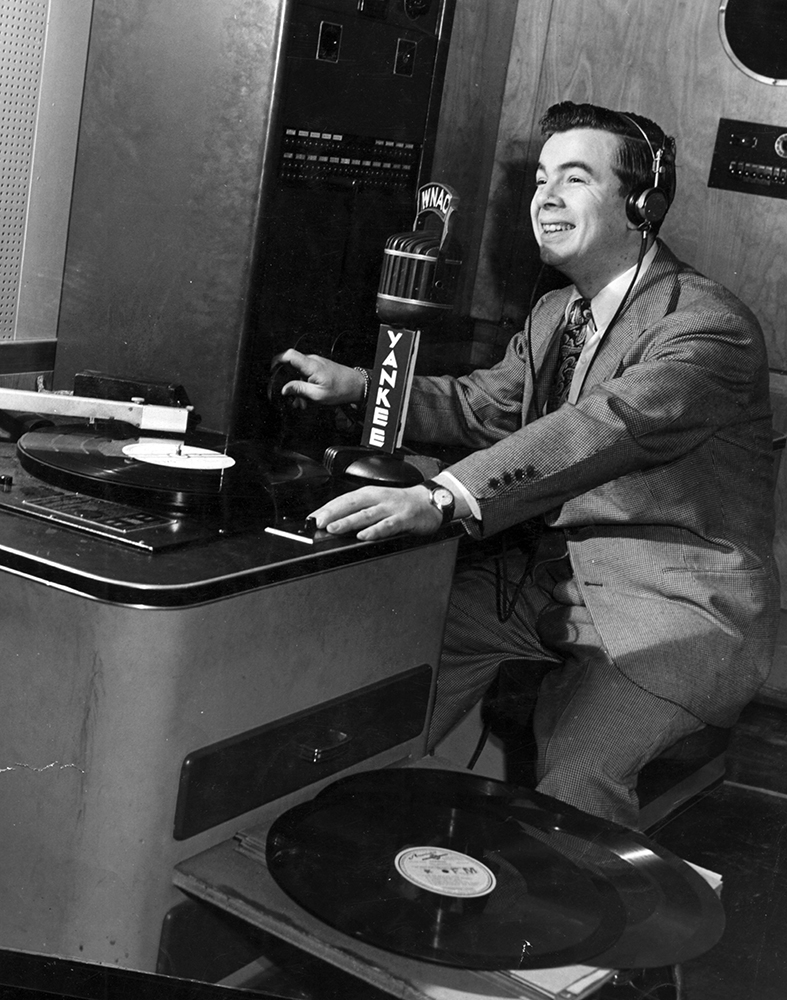
He joined WBZ radio in 1946 and again stayed for about three years as a “singing emcee. He worked on shows such as “The Hour of Song” and the “Boston Tune Party” heard coast-to-coast August of 1946 on Saturday nights on NBC. This national exposure led to several offers; he chose to focus on broadcasting and recording. “Ray Dorey’s Music Shop” was introduced each afternoon with “It’s a Big, Wide, Wonderful World.”
In 1948 his third child, Linda Rae, was born. The next year Ray moved over to WHDH radio. In 1950 Gail Ellen, the last child, was born. Ray worked on scripted disc jockey shows. In the early years he took over the recorded Tommy Dorsey spot 7-8 PM nightly, he took over the Bob and Ray morning show, adding songs and musical instruments, and he appeared with Pat O’Day on the morning show.
For two years in the early 1950’s, Ray taught voice and dramatics at the New England Conservatory of Music although he had been self taught and had no formal training. The school had a department of popular music.
The “Stump Us” show ran at 1:35 in the afternoon. Ray appeared with Bill Green and Ken Wilson. Listeners would write in songs, and Ray, Bill, and Ken would try to play a few bars of the song. If they were “stumped,” the listener won a prize. The show worked because it was so hard to stump this team, and for years, the show had a loyal fan club.
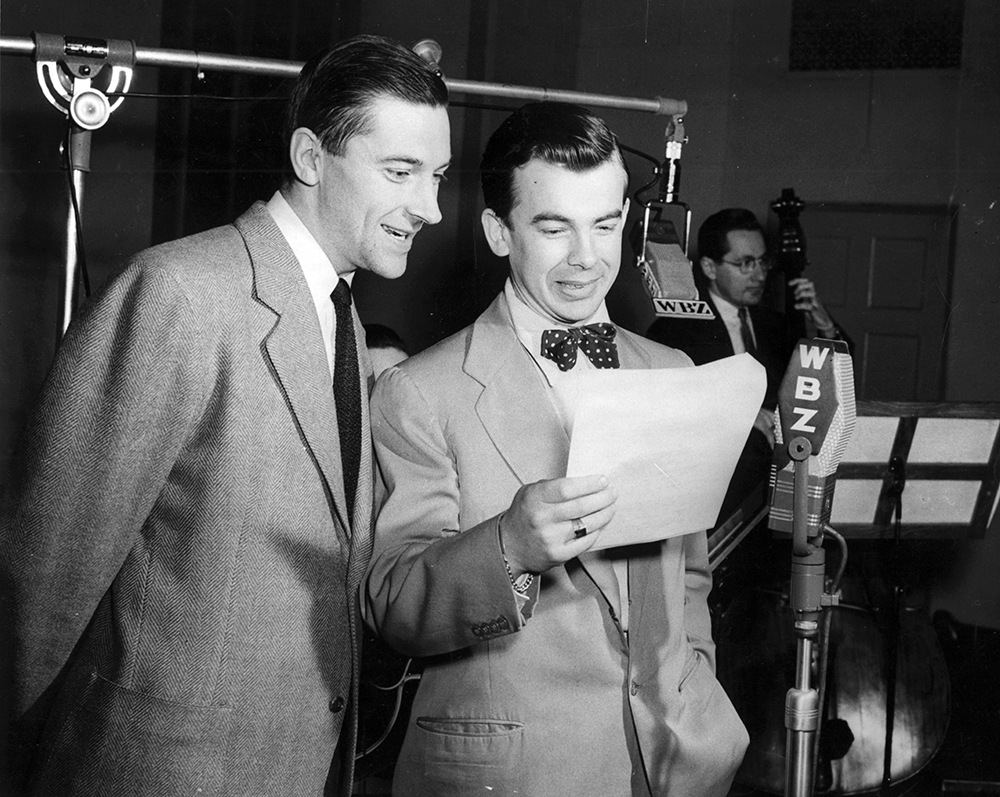
In the late 1950’s, Ray partnered with Jess Cain on the early morning radio show. In 1961, after 25 years in radio, Ray moved over to TV, “The Morning Key Club,” hosted by Joe Kelly each morning from 7:00 – 7:30. The opening theme was “Good Morning” from “Singing in the Rain” and the closing was “When skies are cloudy and grey, they’re only grey for a day, so wrap your troubles in dreams, and dream all your troubles away” from the Bing Crosby song. Ray and the Park Squares later each day provided music for the afternoon New England Farm and Food Program. The Park Squares were Bill Green on piano, Don Alessi on guitar, Ross Centimore on Bass and, Lou Moniano on Vibes / drums / percussion. Five years at WHDH.
Below is a long list of guests that appeared with Ray on one of the shows. In 1962, Arthur Godfrey appeared on “The Morning Key Club” and then invited Ray to come to New York to appear on the Arthur Godfrey Show in December. Ray was known for his ad lib ability and his impersonations of Boris Karloff, Westbrook Van Voorhis, Jerry Lewis, Louis Armstrong and Vaughn Monroe.
Among his hobbies Ray included golf, tennis, swimming, writing, 16mm film and skiing. But most of his spare time was spent in youth activities. He was president of Little League, adult advisor for Chi Rho (Catholic organization), and managed baseball and basketball teams for CYO (Catholic Youth Organization). He was awarded the papal medal, Pro Deo et Jurentate, for work with youth.
TV guests (on both shows) included:
Jean Seberg, Toshiko, Priscilla Howe, Chris Colt, Louis Armstrong, Dakota, Will Jordan, Jeri Scott, Bill Porto, George Sherman, Tubby Boots, Judy Valentine, 4 Voices, Connie Stevens, Tommy Leonetti, Edward Everett Horton, Art Lund, Fernando Lamos, Kirby Stone Four, Don Gillis, Red Auerbach, Arthur Godfrey, Angie Dickenson, Joe Del Belino, Frankie Lane, Bob Barker, Mary Ann Mobley, Fay Emerson, Lloyd Bridges, Jimmy Rushing, Betty Rollin, Troy Donahue, Diane McBain, Tommy Sands, Buddy Grecko, Don Cornell, Mindy Carson, Ed Ames and Arnold Stan, Joe Cronin, Margaret Ford, Rocky Marcianno, Pat Dale, Jerry Vale, Ted Kennedy, Jackie Mason, 4 Freshman, Gene Krupa, Jane Morgan, Theodore Bikel, Sergio French, Lynn Carol Betty Jo Baxter and many more.
